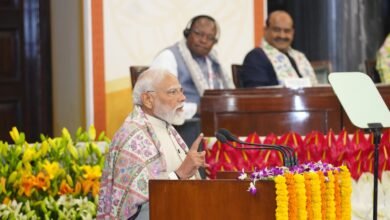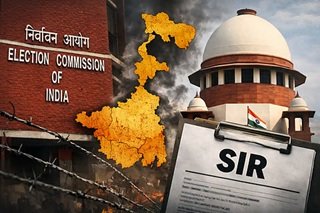Subhas Chandra Bose’s Death: Unraveling the Mystery Behind the 1945 Plane Crash

News Mania Desk/Agnibeena Ghosh/18th August 2024
Subhas Chandra Bose, a prominent figure in India’s struggle for independence, met a tragic end on August 18, 1945. His death occurred as a result of severe burns sustained from a plane crash in Taihoku, Japanese Formosa, now known as Taipei, Taiwan. Bose was traveling as a guest of Lieutenant General Tsunamasa Shidei of the Imperial Japanese Kwantung Army when the aircraft he was aboard crashed shortly after takeoff.
The crash claimed the lives of the chief pilot, copilot, and General Shidei immediately. Bose, who had been exposed to gasoline before managing to exit the burning bomber, was rushed to the Nanmon Military Hospital located south of Taihoku. There, he received medical attention from Dr. Taneyoshi Yoshimi, the chief surgeon, along with Dr. Truruta, Dr. Ishii, and a team of technical staff and nurses. Despite their efforts, Bose’s extensive burns on his upper body proved fatal. He lapsed into a coma and passed away between 9 PM and 10 PM local time.
Colonel Habib ur Rahman, Bose’s chief-of-staff who was traveling with him, also suffered severe burns but eventually recovered. Rahman’s testimony ten years later, given during an inquiry into Bose’s death, revealed visible burn marks on his arms. In Tokyo, General Shidei’s descendants honor his memory annually at the Renkōji Temple, where Bose’s ashes are also enshrined.
Despite the detailed accounts of Bose’s death, many of his supporters, particularly in Bengal, have remained skeptical about the official narrative. They have continued to question the circumstances surrounding his demise, fueling a range of conspiracy theories. These theories emerged almost immediately after his death and have endured over the years, perpetuating various myths about Bose’s fate.
The skepticism surrounding Bose’s death is rooted in his significant role as a nationalist leader and the complex geopolitical context of the time. His death, amid the chaotic end of World War II and the turbulent political landscape, led to widespread speculation and alternative theories. These theories suggest that Bose might have survived the crash or that his death was part of a larger, more convoluted plot.
The ongoing debate and the persistent myths highlight the enduring impact of Subhas Chandra Bose on Indian history and collective memory. His contributions to the independence movement and his enigmatic death have left a lasting legacy, characterized by both admiration and mystery. The continuing interest in Bose’s life and death underscores his significance as a historical figure whose story remains deeply embedded in the fabric of India’s struggle for freedom.
In conclusion, the death of Subhas Chandra Bose remains one of the most debated events in modern Indian history. While official accounts provide a clear picture of the tragic plane crash and its immediate aftermath, the enduring conspiracy theories and the passionate responses from his supporters reflect the profound impact Bose had on his followers and the ongoing intrigue surrounding his life and legacy.






